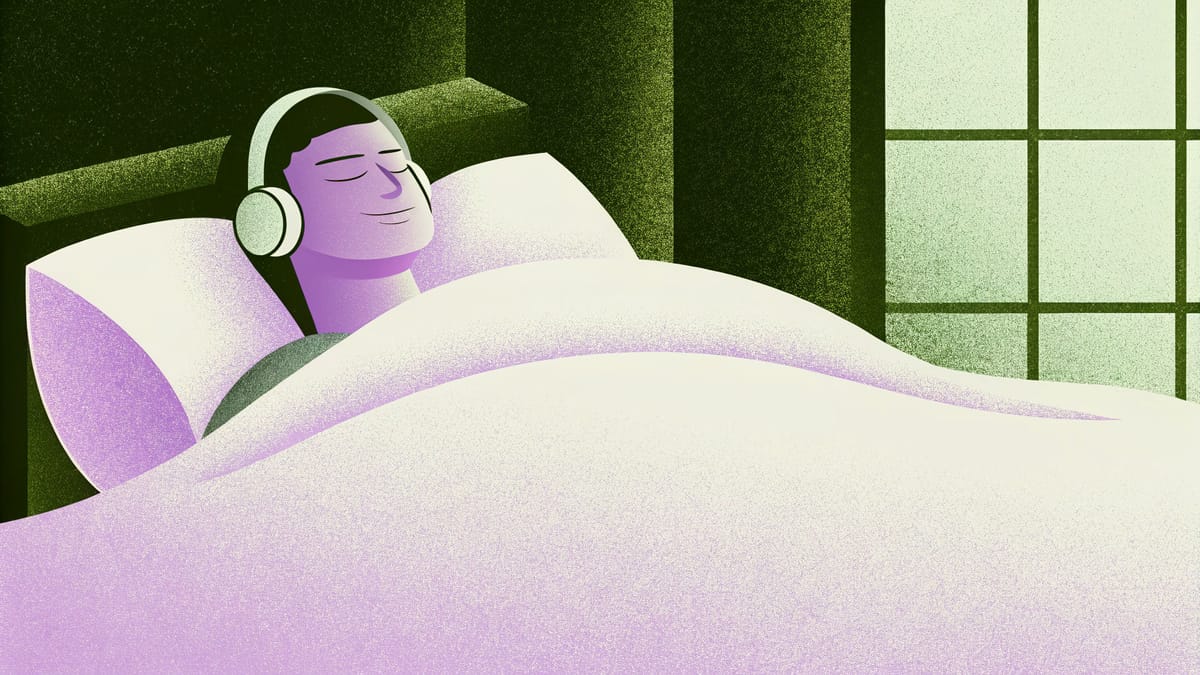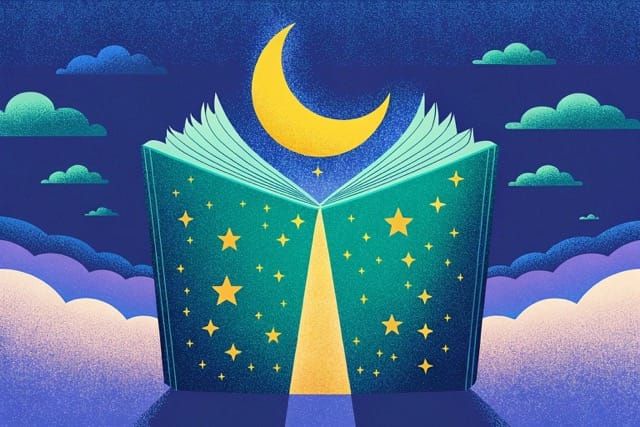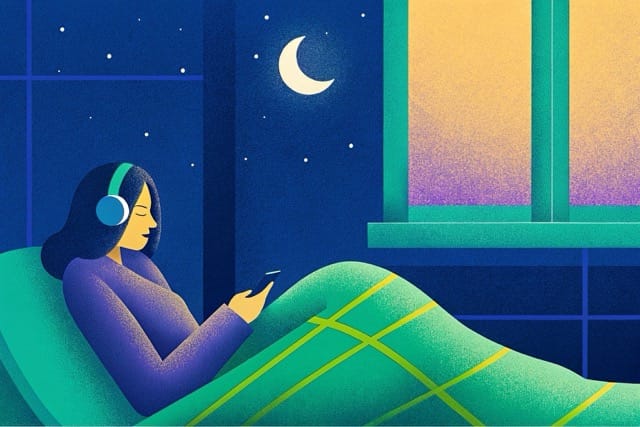How Do Audio Bedtime Stories Compare to Listening to Music Before Bed (Exploring Sleep Benefits and Preferences)
Explore how audio bedtime stories versus music before bed can affect your sleep quality, offering insights into personal preferences and the calming benefits each option provides for a restful night's sleep.

Audio Bedtime Stories vs. Music Before Sleep: Which Works Best for You?
Did you know that what you listen to before bed can significantly impact the quality of your sleep? Whether it’s the soothing sounds of music or the immersive narratives of audio bedtime stories, both have unique benefits, but they also differ in how they prepare you for a restful night.

Let’s dive into the distinctions between these two popular sleep aids to help you decide which might be the better addition to your bedtime routine.
How Cognitive Engagement Impacts Sleep
Audio bedtime stories stand out for their ability to gently engage the mind. Following a narrative requires cognitive focus, which can help distract you from intrusive thoughts or racing mental to-do lists.
This makes them particularly useful if you’re prone to overthinking at night or struggling with anxiety. Imagine lying in bed as a well-paced story unfolds, whisking you away from the stressors of your day.
On the flip side, while music can be relaxing, it typically doesn’t demand the same level of mental engagement. For some, this can create a blank space where anxious thoughts might creep back in.
However, there’s an important consideration: not everyone finds mental stimulation before bed helpful. If you’re someone whose brain becomes too active following a story, music may offer the low-effort relaxation you’re seeking.
Which Is Better at Helping You Fall Asleep
Music has long been celebrated for its sleep-inducing properties, with slow-tempo tracks (between 60-80 beats per minute) proving particularly effective. These songs work by lowering cortisol, the stress hormone, and increasing dopamine, which encourages feelings of relaxation and happiness.
Studies have shown that listening to calming music can shorten the amount of time it takes to fall asleep and improve overall sleep quality.
Audio bedtime stories, while calming, haven’t been studied as extensively for their direct impact on sleep onset. Still, they create a serene atmosphere that helps signal to your body that bedtime is approaching.
Think of them as a cozy, meditative backdrop tailored to provide a mental escape rather than focusing on altering your physical state like music often does.
Determining which works best may come down to personal preference. Are you looking for purely physical relaxation? Music may be your go-to. If you seek imaginative distraction and a touch of whimsy, audio bedtime stories could be the right fit.
Avoiding "Earworms" That Disrupt Sleep
Have you ever gone to bed only to find a song or catchy tune endlessly looping in your head? This phenomenon, known as an “earworm,” is surprisingly common when listening to music near bedtime, especially instrumental tracks.
Unfortunately, instead of soothing you to sleep, it can leave you tossing and turning as your brain replays the melody on repeat.
Audio bedtime stories, on the other hand, are less likely to trigger earworms. Their spoken-word format doesn’t carry the same repetitive qualities as music, making it easier to drift off after listening.
This makes them a more reliable option if you’ve ever struggled with a persistent mental jukebox in the middle of the night.
How Customization and Routine Contribute to Better Sleep
Creating a bedtime routine is one of the most effective ways to signal to your body that it’s time to wind down, and both music and audio bedtime stories can play a role. However, stories often offer more flexibility when it comes to customization.
Apps like Dreamland Tapes, which specialize in adult bedtime stories, allow you to choose the length and tone of the story, making it easier to fit into your routine.
Whether you need a short 10-minute escape or a longer 30-minute session, there’s a story suited to your schedule.
Music can also be part of a bedtime playlist, but it may require more manual curation to ensure the tracks flow seamlessly without disrupting relaxation. And because both work well when used consistently, incorporating either into your nightly ritual can have long-term benefits for your sleep.
The Advantage of Total Darkness for Relaxation
One of the often-overlooked benefits of audio bedtime stories is that they can be enjoyed entirely in darkness. Without the need to glance at a screen or press buttons to skip tracks, you can simply close your eyes and sink into the story.
This allows your body to maximize melatonin production, the hormone essential for quality sleep.

While music can also be played in the dark, choosing songs via a device may expose you to blue light, which can interfere with your ability to fall asleep quickly.
For this reason, stories might have a slight edge when it comes to maintaining an ideal sleep environment—especially if relaxation apps like Dreamland Tapes are part of your nighttime arsenal.
Key Takeaways
- Audio bedtime stories engage the mind and distract from anxious thoughts, while music focuses more on physical relaxation.
- Music has proven sleep-inducing benefits but may cause "earworms," whereas stories are less likely to disrupt your sleep in this way.
- Both are excellent tools for a bedtime routine but choosing audio stories allows for flexibility, darkness, and customization that enhances relaxation.